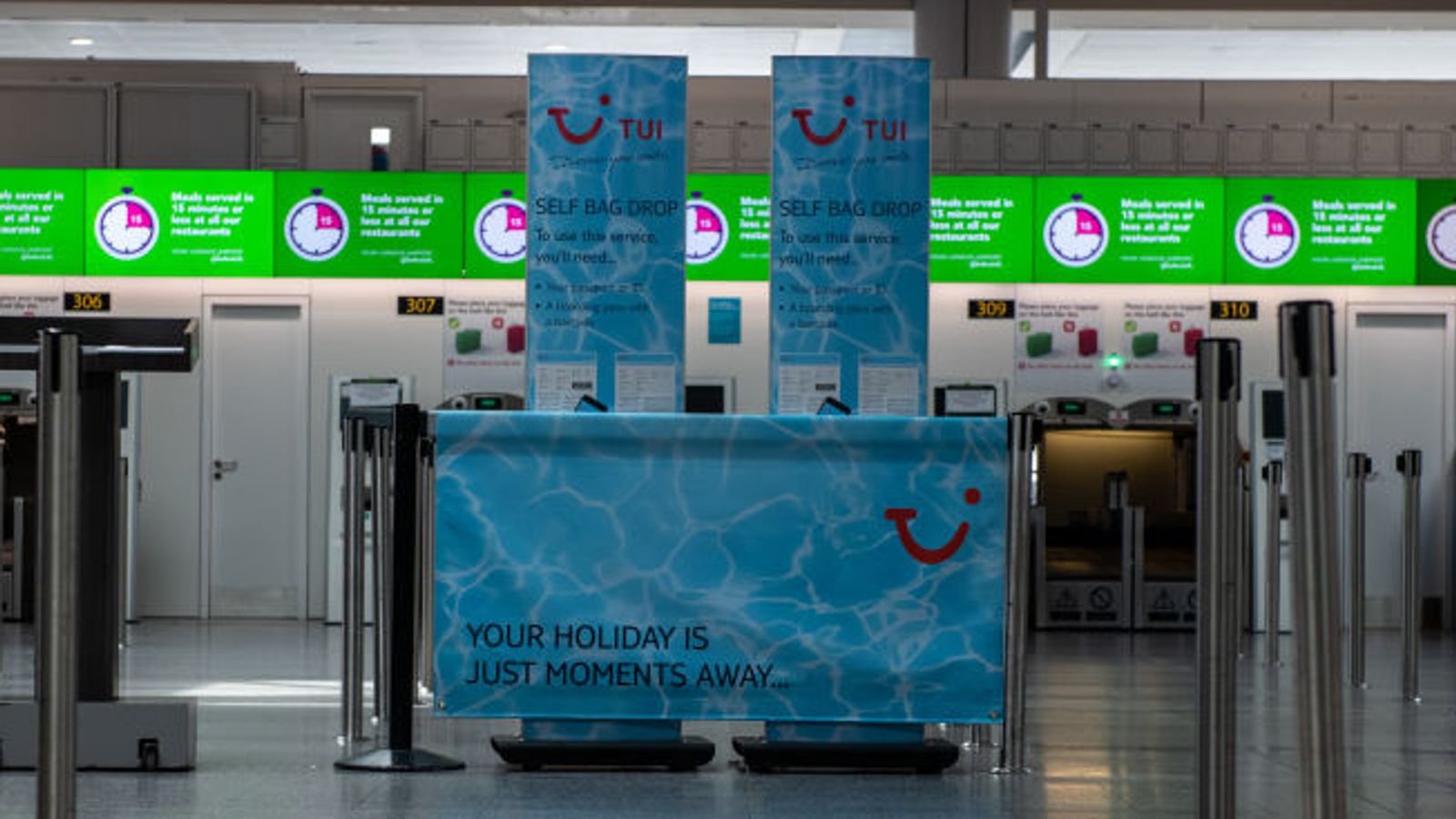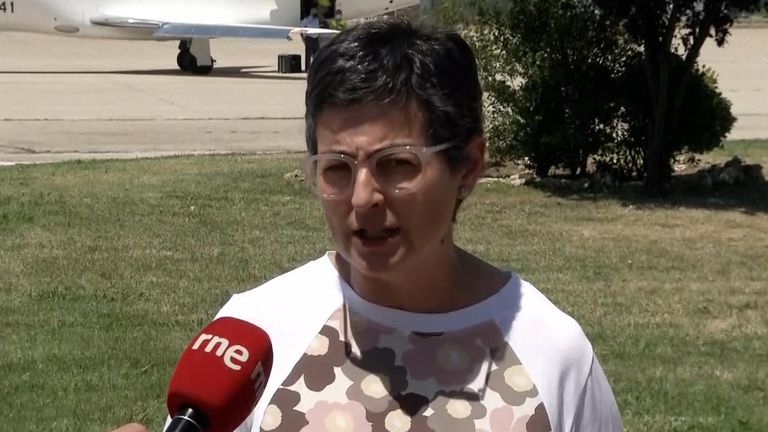Holiday firm TUI has called on the government to take a more targeted approach to the imposition of coronavirus quarantine measures amid an industry backlash against curbs on travel to Spain.
The company’s UK managing director, Andrew Flintham, told Sky News a more “nuanced” attitude was called for after ministers gave just hours’ notice on Saturday evening of a decision to force a 14-day isolation period on people arriving in the UK from all of Spain, citing a spike in COVID-19 cases.
TUI later said it had cancelled flights to mainland Spain until 9th August.
Figures from Spanish authorities suggest clusters of infections in Barcelona and elsewhere on the mainland but relatively few cases on its islands – also popular with tourists.
The government’s decision is seen by travel companies as risking a wave of cancellations – putting people off holidays abroad at a time when they are desperate for sales.
But at the same time, growing fears of a second wave of coronavirus infections struck financial markets on Monday with the cost of gold, a traditional safe haven for money in troubled times, hitting a record $1927.90 per ounce.
The flight from risk took a predictable toll on companies exposed to the travel market – stocks that felt the worst of the pain when investors took fright at the start of the crisis in Europe in late February.
Frankfurt-traded TUI shares were 15% lower in early deals while easyJet nosedived by 14%.
British Airways-owner IAG was down by 9% while Ryanair, which had warned of a lack of clarity on the months ahead just hours earlier, saw its shares fall 8%. Its chief executive, Michael O’Leary described the UK’s Spain quarantine as a “badly-managed overreaction”.
The biggest fear for investors in such companies is that governments restrict movements more widely – forcing a U-turn on expectations among airlines and holiday operators of a gradual return to normal life.
With that in mind, Mr Flintham said it would be helpful to have regional travel advice for countries, as opposed to a one-size-fits-all approach.
He told Sky’s Kay Burley@Breakfast programme: “If the Balearics are still OK to go, and clearly the travel advice is you can travel, should we have a different quarantine or no quarantine for those and not lump it all together as in one big total Spain quarantine?”
TUI said it had made representations to the UK government on this point.
Mr Flintham added: “We’re really after a little bit of a nuance because, let’s be honest, going forward somewhere like the United States, it could be there’s a problem in Florida and not in California and you wouldn’t want to close the whole of the United States to tourists.”
Adam Marshall, director-general of the British Chambers of Commerce, said of the quarantine: “Businesses will be asking why Spain was on the safe list on Friday, only to be taken off it on Saturday.
“Changes to quarantine rules must be communicated clearly by government with as much notice as possible.
“Continued improvement of the test and trace programme, alongside co-ordinated checks at departure and arrival airports, could alleviate the need for many of these restrictions.”
ABTA – the UK’s travel trade association – said: “ABTA has consistently said that protecting public health must be the priority at this time”.
But it added: “It is vital to base decisions about travel on the best health and scientific advice.”
Julie Palmer, partner at recovery specialists Begbies Traynor, said of the renewed share price slides: “Quarantines, falling consumer spending and anxieties about being in a confined space with others have all caused the airline sector to take a nose dive.
“While these heavy losses are to be expected the real issue is what’s to come. Several airlines can survive a number of months due to high cash stocks, but the mass disruption to travel caused by countries experiencing waves at different times will have this sector tied in knots for months.
“With the UK government placing its own quarantine on Spain over the weekend at short notice the implication is that this could happen to travellers from and to other countries.
“Such unpredictability will make holidaymakers think twice before travelling. There is a huge piece about travel safety that airlines and holiday companies will have to do before holidaymakers feel completely safe to travel again, but they will have to be quick or we could see more airlines in distress before the end of the year.”


